The post Recap: DBpedia Day in Amsterdam @ SEMANTiCS 2024 appeared first on DBpedia Association.
]]>First and foremost, we would like to thank the Institute for Applied Informatics for supporting our community and many thanks to the SEMANTiCS organization team for hosting this year’s DBpedia Day.
Opening of the DBpedia Day
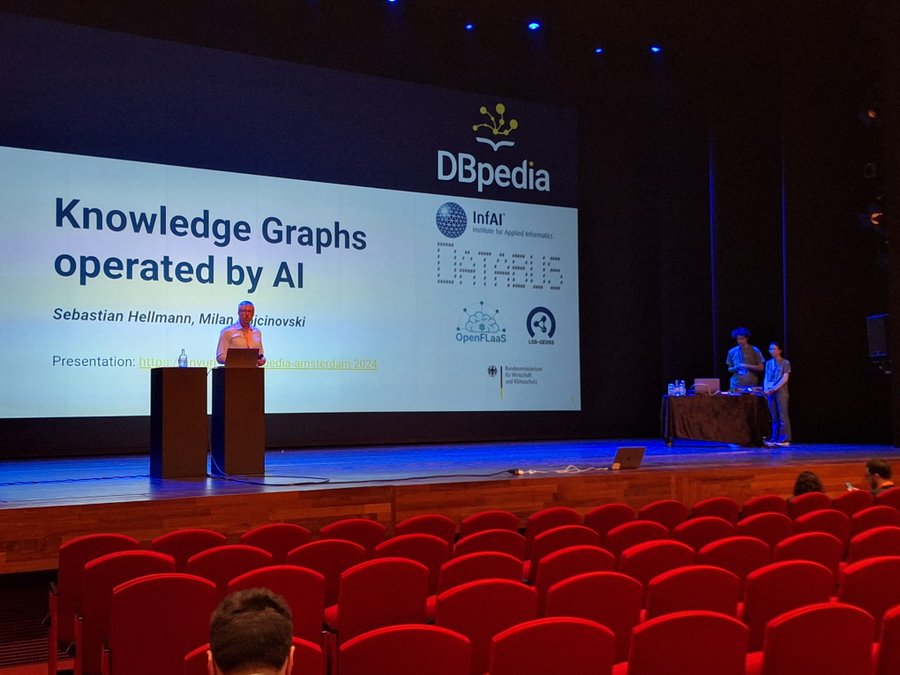
Our CEO Sebastian Hellmann opened this year’s community meeting by giving the presentation “KG Operated by AI” (slides). Afterwards, Ruben Verborgh from the Ghent University – imec gave his fantastic keynote presentation “Trust me, I’m a Human”. You can read his abstract here. In his presentation, Ruben Verborgh explored the timeless nature of numbers and data, humorously linking their existence to key events in history, from the Big Bang to the development of the Web and GDPR. He concluded by highlighting the arrival of ChatGPT in 2022, playfully claiming it made all previous innovations obsolete.
Session: AI Applications on top of KGs
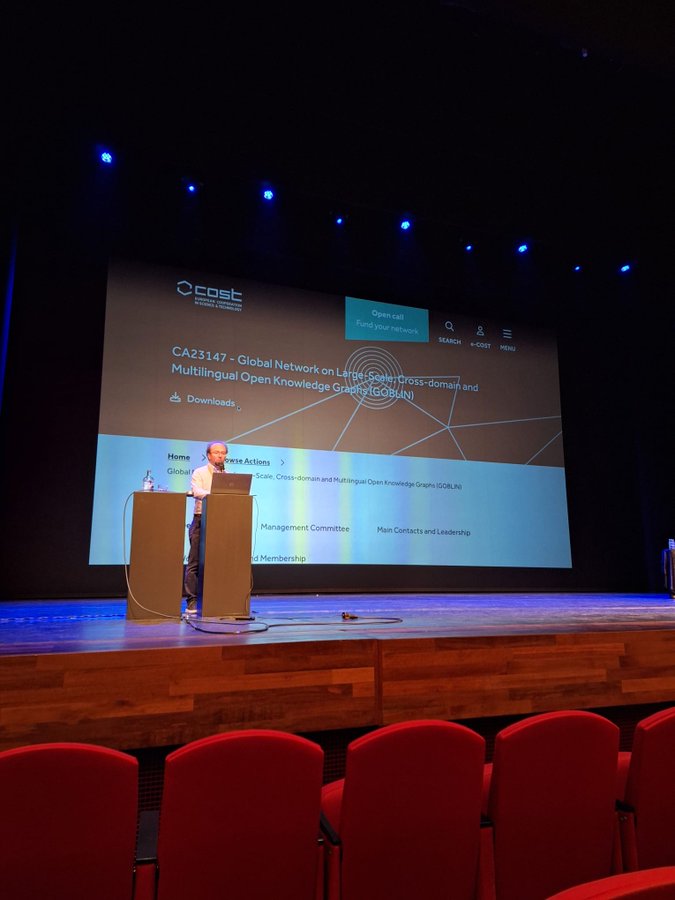
Milan Dojchinovski, InfAI/DBpedia Association and CTU Prague, started the second session “AI Applications on top of KGs” with a short welcome. The first speaker was Ricardo Alonso Maturana, GNOSS, with his presentation “Truth and reality in the early deployment of the AI Society (slides). About explainable AI and the role of Large, Global, Unified Knowledge Graphs.”. Shortly after, Purushotham Botla, Infinite Analytics, talked about “Leveraging LLMs on top of Knowledge Graphs and to Understand Place, People, and Product Relationships” (slides). Next, Kilian Pramschiefer, starki.berlin, talked about “AI for all – A bottom-up, symbolic approach to artificial reasoning” (slides). Finally, the last presentation “ORKG Ask: A Neuro-Symbolic Scholarly Search System” was given by Allard Oelen, TIB – Leibniz Information Centre for Science and Technology (slides).
Session: Design, Construction and Refinement of KGs by AI
This session focused on how AI can support Knowledge Graphs. New research on linking and consumption of the DBpedia Knowledge Graph and LLM were presented, as well as methods and tools. Milan Dojchinovski, InfAI/DBpedia Association and CTU Prague, chaired this session with three talks. Hereafter you will find the presentations given during this session:
- “Training an LLM for generating KG from raw transcript” by Michiel Buisman, CIO Office at UWV (slides)
- “Text2Networks: Bootstrapping Domain Ontologies and Inference Pipelines that Build Graphs from Textual Data Streams” by Chris Hokamp & Demian Gholipour Ghalandari, Shashank Mangla & Jack Boylan, Quantexa
- “LLM-assisted KG engineering” by Johannes Frey, InfAI (slides)
Discussion Session: DBpedia and AI
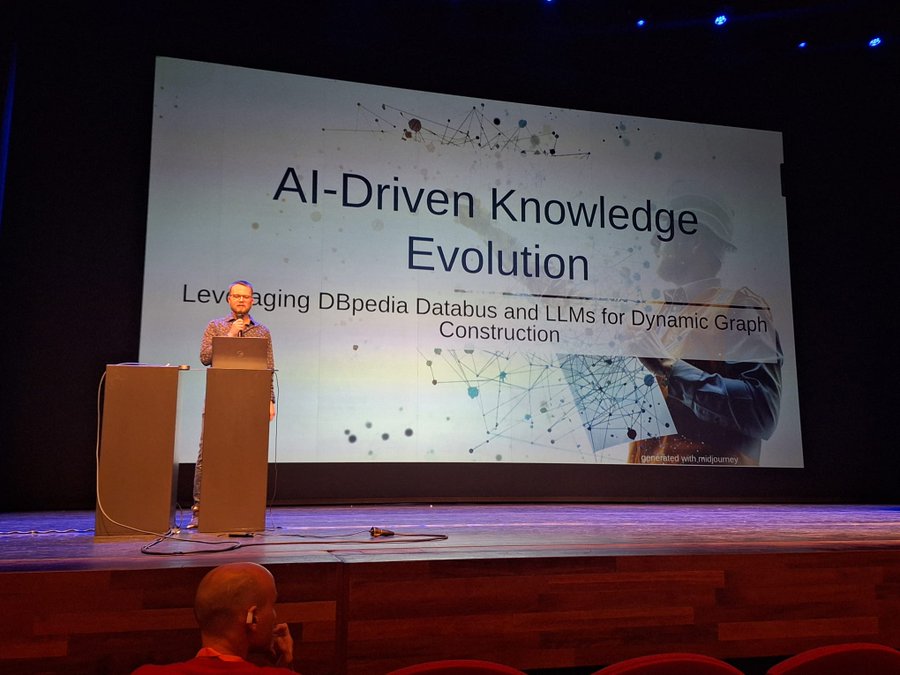
The session “Discussion Session on DBpedia and AI”, chaired by Sebastian Hellmann, InfAI/DBpedia Association, focused on the integration of large language models (LLMs) and knowledge graphs. Marvin Hofer, ScaDS.AI, presented his talk on “AI-Driven Knowledge Evolution: Leveraging DBpedia Databus and LLMs for Dynamic Graph Construction”, where he explored how AI can be used to enhance and automate the creation of knowledge graphs (slides). The session also included an interactive part, moderated by Sebastian Hellmann, encouraging audience participation and discussion (slides).
In case you missed the event, all slides are also available on our event page. Further insights, feedback and photos about the event are available on Twitter via #DBpediaDay.
We are now looking forward to more DBpedia events in the upcoming months and next year’s SEMANTiCS Conference, which will be held in Vienna, Austria..
Stay safe and check Twitter or LinkedIn. Furthermore, you can subscribe to our Newsletter for the latest news and information around DBpedia.
Maria & Julia
On behalf of the DBpedia Association
The post Recap: DBpedia Day in Amsterdam @ SEMANTiCS 2024 appeared first on DBpedia Association.
]]>The post CfP: KG operated by AI – DBpedia Day 2024 appeared first on DBpedia Association.
]]>Event Date: 17th September 2024
Location: Co-located with SEMANTiCS 2024
Event Website: https://www.dbpedia.org/events/dbpedia-day-2024/
We invite the world’s leading Knowledge Engineering experts to gain insights on the topic “Knowledge Graphs operated by AI”. This event aims to explore how recent advances in AI can leverage and exploit structured knowledge, as well as address new challenges and necessary changes to advance the vision of “Knowledge Graphs operated by AI”.
DBpedia, as one of the first open knowledge graphs since 2007, has significantly influenced and shaped existing standards. As a community, we should now work together to reap the benefits of the available structured knowledge. New opportunities are developing via recent advances in AI, and we seek input on leveraging this technology, as well as an open discussion on the challenges and necessary changes to further the vision of AI-operated Knowledge Graphs.
Topics include (but are not limited to):
- Standards and Best Practices:
- Streamlining consumption by AI: Proposing changes and frameworks to improve the current Linked Data and Knowledge Graph infrastructure.
- Discovery, summarization, and efficient data retrieval methods.
- REST/HATEAOS, Structured Data Islands/JSON-LD, 303-less Linked Data.
- Metadata standards for better linking, integration, and interoperability.
- Development and enhancement of Ontologies and Mappings to facilitate the integration of knowledge from distributed sources.
- Exploration and Querying:
- Building novel AI-driven interfaces using natural language processing.
- Automatically generating SPARQL queries from natural language inputs.
- Integrating secure knowledge in Generative AI systems.
- Acquiring Knowledge:
- Methods for AI to autonomously discover and integrate new data sources.
- Leveraging machine learning techniques for the automated extraction of knowledge from unstructured data.
- Enhancing knowledge bases with real-time data updates and corrections.
- Coordinating Knowledge:
- Frameworks and protocols for the coordination of knowledge across distributed systems.
- AI-driven methods for ensuring data consistency and integrity.
- Utilizing blockchain and other technologies for secure and transparent knowledge coordination.
- Managing Knowledge:
- Strategies for maintaining and updating knowledge graphs using AI.
- AI-driven validation and verification of knowledge to ensure accuracy and relevance.
- Techniques for scalable storage and retrieval of vast amounts of structured data.
- Ethical and Societal Implications:
- Addressing privacy and security concerns in AI-operated knowledge graphs.
- Ensuring transparency and explainability in AI’s use of knowledge graphs.
- Understanding the societal impact of AI-driven knowledge management and dissemination.
- Use Cases and Applications:
- Real-world examples of AI leveraging knowledge graphs for various applications.
- Case studies on the success and challenges of implementing AI-driven knowledge management systems.
- Innovative applications in healthcare, finance, education, and other sectors.
We look forward to your contributions and discussions on how we can collaboratively advance the integration of AI and Knowledge Graphs, bringing us closer to realizing the Semantic Web’s original vision.
Submission Guidelines
Please submit your presentation proposals by Monday July 1st, 2024 (Anywhere On Earth; UTC-12) to https://forms.gle/hQydymKtzaHSysJx6. Proposals should include a title, abstract (300 words max), and a brief biography of the presenter(s).
Abstracts will be evaluated based on establishing a strong relation to the call and its topics. While we generally welcome mature and well-engineered showcases and implementations, we will accept some talks with idea, position or impulse character. Additionally, we will positively evaluate industry talks that describe needs and requirements.
For further details, visit our website https://www.dbpedia.org/events/dbpedia-day-2024/.
If you have any questions, please contact dbpedia@infai.org.
Join us at DBpedia Day 2024 and be a part of shaping the future of Knowledge Graphs operated by AI!
The post CfP: KG operated by AI – DBpedia Day 2024 appeared first on DBpedia Association.
]]>The post A year with DBpedia – Retrospective Part 2/2023 appeared first on DBpedia Association.
]]>Tutorial @ Language, Data and Knowledge conference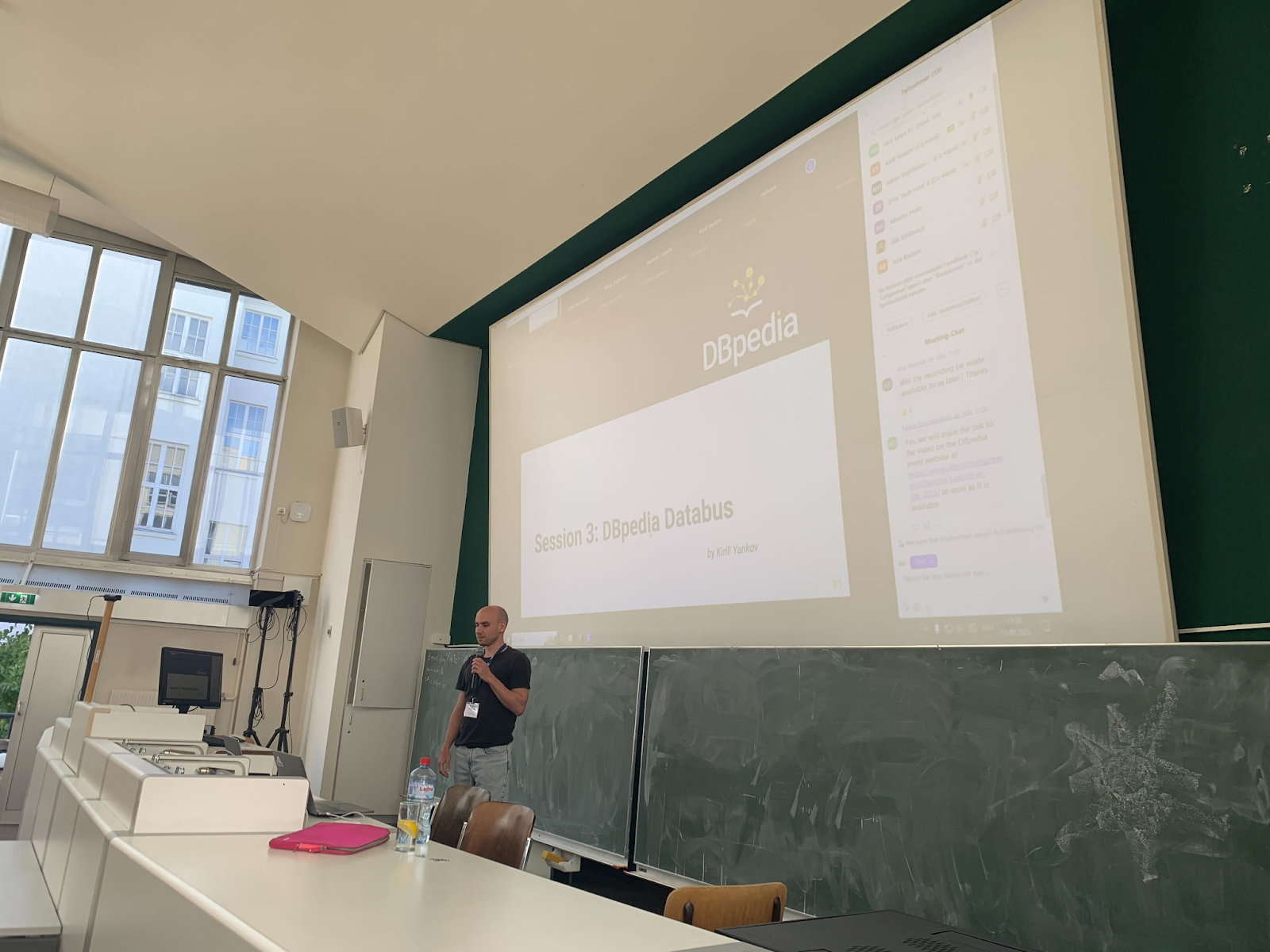
On 13th of September, 2023, an exciting tutorial took place at the University of Vienna in the Center for Translation Studies as part of the LDK 2023. The LDK conference focuses on the acquisition, maintenance and use of language data in the context of data science and knowledge-based applications. The tutorial was opened by Milan Dojchinovski (InfAI, DBpedia Association, CTU in Prague). This was followed by three sessions, which were accompanied by many real-world practical use cases, on the DBpedia Knowledge Graph, the infrastructure and the use of the databus data publishing platform. Check more details on our events page.
DBpedia Day @ SEMANTiCS in Leipzig
DBpedia Day was once again part of the program at this year’s SEMANTICS conference 2023. It was held on 20th of September at the HYPERION Hotel Leipzig with up to 100 DBpedians. Once again this year, our CEO Sebastian Hellmann opened the day with a presentation of the “DBpedia Databus version 2.1.0”. This was followed by the exciting keynote speech “Towards Foundation Models for Data Spaces” by Edward Curry from the University of Galway, Ireland. Afterwards, we organized the member session and the DBpedia Science Talk session. All slides can also be found on our events page.
Databus
Databus pre-launch announcement
We are in the final stage of the DBpedia Databus open software release (GitHub). Remaining issues include quality of life and UI improvements. Check out the Databus feature matrix for our lightweight, scalable, adaptable, powerful Data Catalog Platform (direct download link, persistent data identifier on the databus). Contact dbpedia@infai.org for demo, business, or research proposal inquiries.
Databus excels at cataloging de-central data of any filetype using RDF/DCAT. We selected a few initial focal use cases, where the Databus serves as:
- AIModelHub for AI training data, models, validation, and deployment.
- Research Data Management Catalog for research institutes and communities.
- Supply-Chain-Management Platform for product information collection along the supply chain and construction of Digital Product Passports.
- Community Data Portal, e.g., for the DBpedia Community.
DBpedia Contributions will be enabled soon, taking DBpedia to the moon! 🚀
In DBpedia’s future, the Databus will be used to collect community contributions more effectively, giving DBpedia an enormous boost in quantity and quality. https://databus.dbpedia.org already catalogs over 350k files with over 1 Million file downloads per month! We are preparing showcases, templates, and documentation for these community contribution types:
- Community Extensions such as caligraph.org or AI-improved abstracts.
- Community Link Contributions for inclusion in the main graph.
- RDF profiles for DBpedia Users and Members (FOAF, Schema.org, WebID) via Databus Accounts (including publication of expertise).
- Dockerized RDF Tool Deployment so you can automatically load DBpedia and other RDF data into your favorite RDF tools via Databus collections. Our Databus-powered Virtuoso SPARQL Endpoint Quickstart Docker has already been deployed over 150k times!
We do hope we will meet you and some new faces during our events next year. The association wants to get to know you because DBpedia is a community effort and would not continue to develop, improve and grow without you. We plan to have a tutorial at the LREC-COLING 2024 conference and a meeting at SEMANTiCS, Sep 17-19, 2024, conference in Amsterdam, Netherlands.
Stay safe and check Twitter, Instagram and LinkedIn or or subscribe to our Newsletter for the latest news and information.
Yours,
Julia & Maria
on behalf of the DBpedia Association
The post A year with DBpedia – Retrospective Part 2/2023 appeared first on DBpedia Association.
]]>The post DBpedia Day in Leipzig @ SEMANTiCS 2023 appeared first on DBpedia Association.
]]>First and foremost, we would like to thank the Institute for Applied Informatics for supporting our community and many thanks to the SEMANTiCS organization team for hosting this year’s community meeting.
Opening of the DBpedia Day
Also this year, our CEO Sebastian Hellmann opened the community meeting by presenting the Databus 2.1.0 project (slides). Afterwards, Edward Curry from the University of Galway gave his fantastic keynote presentation “Towards Foundation Models for Data Spaces”. You can read his abstract here.
Member Presentation Session
Milan Dojchinovski, InfAI/DBpedia Association and CTU Prague, started the member presentation session with a short welcome. The first speaker was Angel Moreno, GNOSS, with his presentation “NEURALIA Rioja: the unified Knowledge Graph of La Rioja Government which integrates twenty six sources of information in a single access point” (slides). Shortly after, Enno Meijers, KB, talked about “Network-of-Terms, bringing links to your data” (slides). Next, Sarah Binta Alam Shoilee, Network Institute & Vrije Universiteit Amsterdam talked about ”Cultural AI Lab”(slides). This was followed by the presentation “Linking and Consumption of DBpedia in TriplyDB” by Kathrin Dentler & Wouter Beek, TriplyDB (slides). Then Sebastian Gabler, SWC, talked about “Using Dewey Decimal Classification for linked data” (slides). Finally, the last talk of this session was given by Sebastian Tramp, eccenca, with “Using DBpedia Services with eccenca Corporate Memory and eccenca.my”.
For further details of the presentations follow the links to the slides.
- “NEURALIA Rioja: the unified Knowledge Graph of La Rioja Government which integrates twenty six sources of information in a single access point” by Angel Moreno, GNOSS (slides)
- “Network-of-Terms, bringing links to your data” by Enno Meijers, KB (slides)
- ”Cultural AI Lab” by Sarah Binta Alam Shoilee, Network Institute & Vrije Universiteit Amsterdam (slides)
- “Linking and Consumption of DBpedia in TriplyDB” by Kathrin Dentler & Wouter Beek, TriplyDB (slides)
- “Using Dewey Decimal Classification for linked data” by Sebastian Gabler, SWC (slides)
- “Using DBpedia Services with eccenca Corporate Memory and eccenca.my” by Sebastian Tramp, eccenca (slides)
DBpedia Science: Linking and Consumption
This session was dedicated to the most recent research on linking and consumption of the DBpedia Knowledge Graph and beyond. Novel methods, tools and challenges around linking and consumption of knowledge graphs were presented and discussed. Milan Dojchinovski, InfAI/DBpedia Association and CTU Prague, chaired this session with five talks. Hereafter you will find the presentations given during this session:
- “Open Research Knowledge Graph” by Sören Auer, TIB
- “Blocking Methods for Entity Resolution on Knowledge Graphs” by Daniel Obraczka, Data Science Center ScaDS.AI Dresden/Leipzig (slides)
- “Validating SHACL Constraints with Reasoning: Lessons Learned from DBpedia” by Maribel Acosta, TUM School of Computation, Information and Technology
- “Exploiting Semi-Structured Information in Wikipedia for Knowledge Graph Construction” by Nicolas Heist, Data and Web Science Group, University of Mannheim (slides)
- “Using Pre-trained Language Models for Abstractive DBpedia Summarization” by Hamada Zahera, Data Science Group, Paderborn University (slides)
DBpedia Community session
Sebastian Hellmann, InfAI/DBpedia Association, hosted this year’s community session. DBpedia has had a major impact on data landscape during our 15-year journey. This session discussed the progress of the vision of a “Global and Unified Access to Knowledge Graphs”, which paved the way for an international FAIR Open Data Space driven by knowledge graphs. The session focused on the potential of large-scale knowledge graphs to reshape the open data domain. Topics included how the DBpedia community can pool its data, tools and know-how more effectively, and how we can make these assets more findable, accessible and interoperable. The session provided an insightful discourse on the future of open data and how we can forge strategic alliances across diverse industrial sectors.
Following, you find the presentations of this session:
- “Update Japanese DBpedia” Hideaki Takeda, LODI (slides)
- Several impulses about different topics and follow-up discussion, moderated by Sebastian Hellmann, InfAI/DBpedia Association (discussion document)
In case you missed the event, all slides are also available on our event page. Further insights, feedback and photos about the event are available on Twitter via #DBpediaDay.
We are now looking forward to more DBpedia events in the upcoming months and at next year’s SEMANTiCS Conference, which will be held in Amsterdam, Netherlands.
Stay safe and check Twitter or LinkedIn. Furthermore, you can subscribe to our Newsletter for the latest news and information around DBpedia.
Maria & Julia
on behalf of the DBpedia Association
The post DBpedia Day in Leipzig @ SEMANTiCS 2023 appeared first on DBpedia Association.
]]>The post Retrospective 2023 – Half a year with DBpedia appeared first on DBpedia Association.
]]>DBpedia is part of the Google Summer of Code project 2023
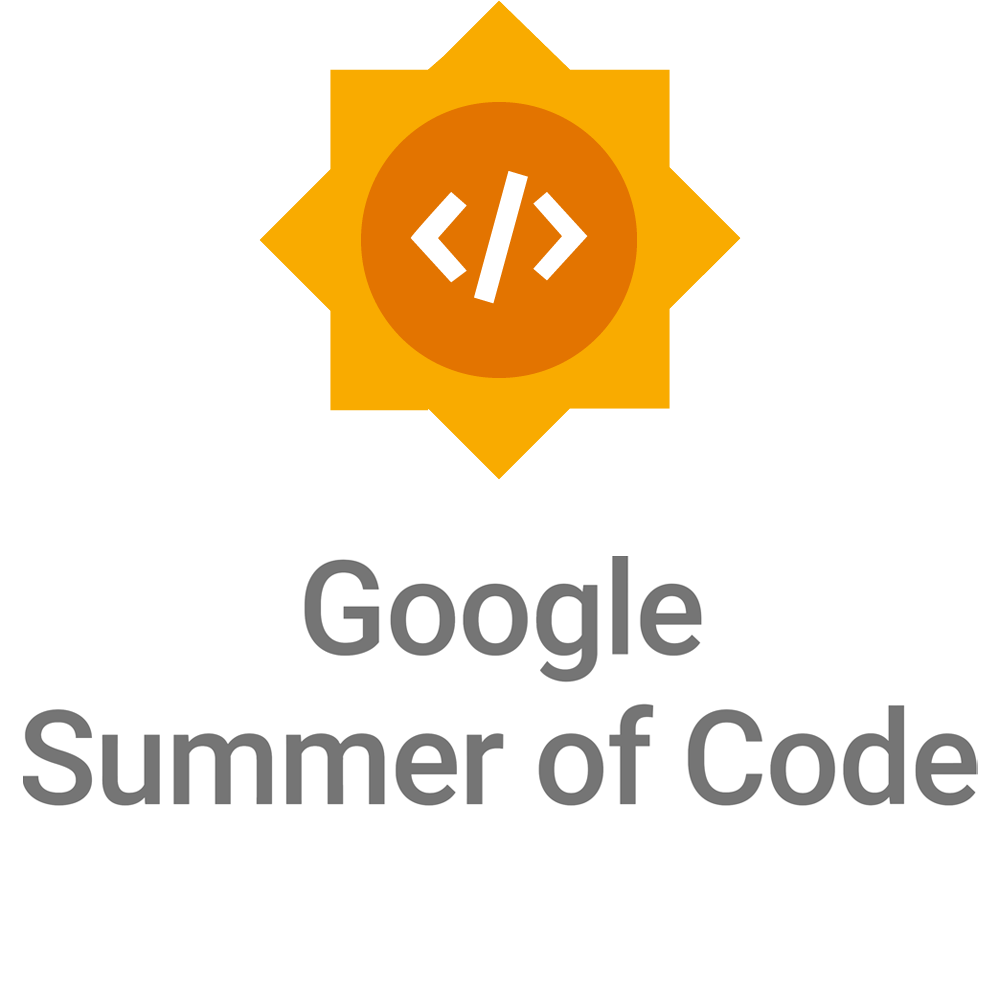
So far, each year has brought us new project ideas, many amazing students and great project results that shaped the future of DBpedia. Like every year, we received many fantastic applications this year. Out of these applications 6 great projects from contributors all over the world were selected to work together with our mentors. Right now the contributors are in the middle of the coding phase. If you want to know more about this year’s projects go and have a look at the DBpedia blog.
DBpedia Snapshot 2022-12 Release
We are pleased to announce immediate availability of a new edition of the free and publicly accessible Sparql Query Service Endpoint and Linked Data pages, for interacting with the new Snapshot Dataset. Check our blog!
Leipzig Semantic Web Day
On June 28, 2023, Sebastian Hellmann presented the DBpedia Databus 2.1. at Data Week Leipzig. Data Week is the networking and exchange event for highlighting scientific, economic, and social perspectives of data and its use, where industry, citizens, science, and public authorities can enter into dialogue. Data Week Leipzig took place June 26-30, 2023. Please find Sebastian’s slides here.
What Will the Future Bring?
We are now looking forward to the LDK conference, which will take place September 12-15, 2023, in Vienna, Austria. Will will organize a tutorial on September 13, 2023. If you would like to join, please check more details on our event page. After that, we’ll fly straight back to Leipzig, because the Semantics Conference will be held at the Hyperion Hotel Leipzig from September 20 to 22, 2023. At the beginning of the conference, we will host the DBpedia Day on September 20, 2023.
Stay safe and check Twitter or LinkedIn. Furthermore, you can subscribe to our newsletter for the latest news and information around DBpedia.
Julia
on behalf of the DBpedia Association
The post Retrospective 2023 – Half a year with DBpedia appeared first on DBpedia Association.
]]>The post DBpedia Day in Vienna – Servus! appeared first on DBpedia Association.
]]>First and foremost, we would like to thank the Institute for Applied Informatics for supporting our community and many thanks to the SEMANTiCS organization team for hosting this year’s DBpedia Day.
Opening of the DBpedia Day
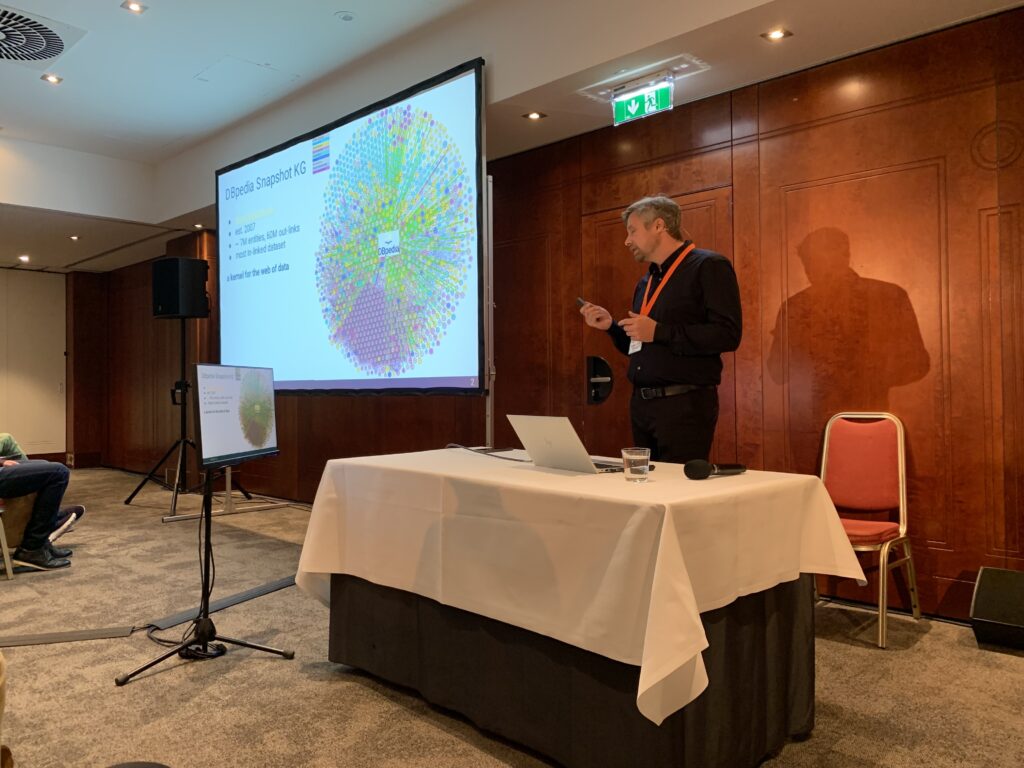
Also this year, our CEO Sebastian Hellmann opened DBpedia Day by presenting the Linkmaster 3000 project (slides). Afterwards, Olaf Harting from Linköping University gave his fantastic keynote presentation “Towards Querying Heterogeneous Federations of Interlinked Knowledge Graphs”. If you would like to get more insights, please find his slide deck here.
Member Presentation Session
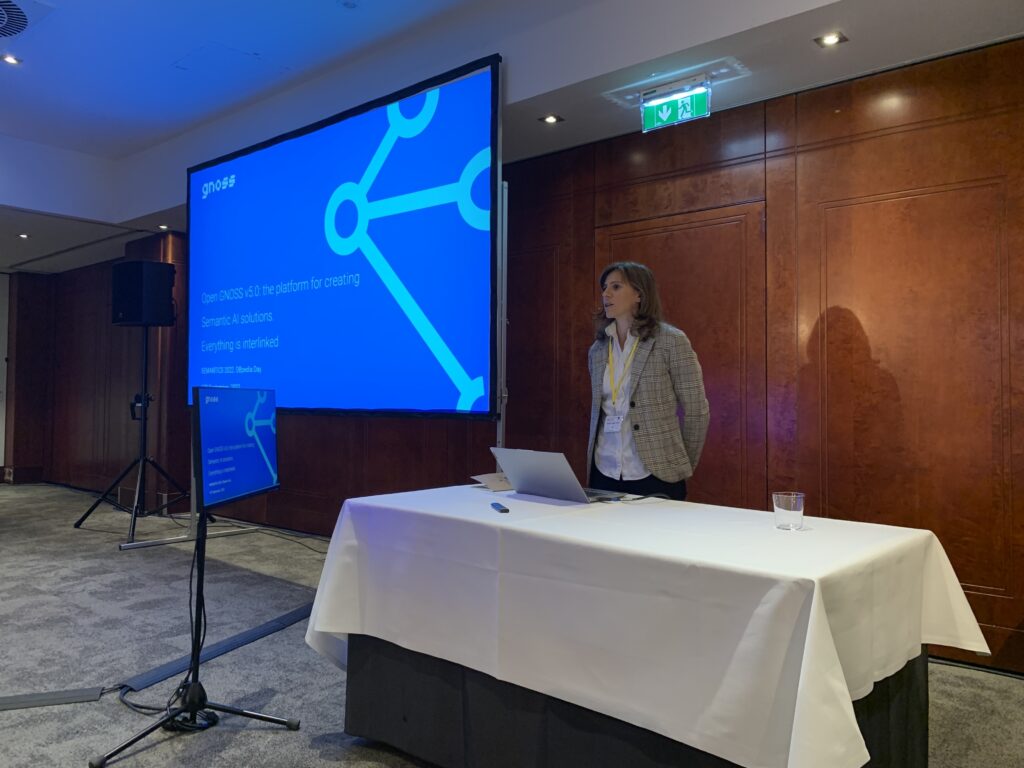
Gavin Mendel Gleason, TerminusDB, started the DBpedia member presentation session with his presentation “TerminusCMS: the semantically aware & natively versioned content management system”. Shortly after, Susana López-Sola, GNOSS, talked about “Open GNOSS V.5.0: the platform for creating Semantic AI solutions. Everything is interlinked”. Next, Sotiris Karampatakis, Semantic Web Company, talked about “Using PoolParty to provide up-to-date vocabularies to CKAN data portals”. Followed by an online presentation by David Riccitelli, WordLift, presenting the “Making sense of your Knowledge Graph with Google DataStudio”.
For further details of the presentations follow the links to the slides.
- “TerminusCMS: the semantically aware & natively versioned content management system” by Gavin Mendel Gleason, TerminusDB (slides)
- “Open GNOSS V.5.0: the platform for creating Semantic AI solutions. Everything is interlinked.” by Susana López-Sola, GNOSS (slides)
- “Using PoolParty to provide up-to-date vocabularies to CKAN data portals.” by Sotiris Karampatakis, Semantic Web Company (slides)
- “Making sense of your Knowledge Graph with Google DataStudio” by David Riccitelli, WordLift (slides)
DBpedia Science: Linking and Consumption
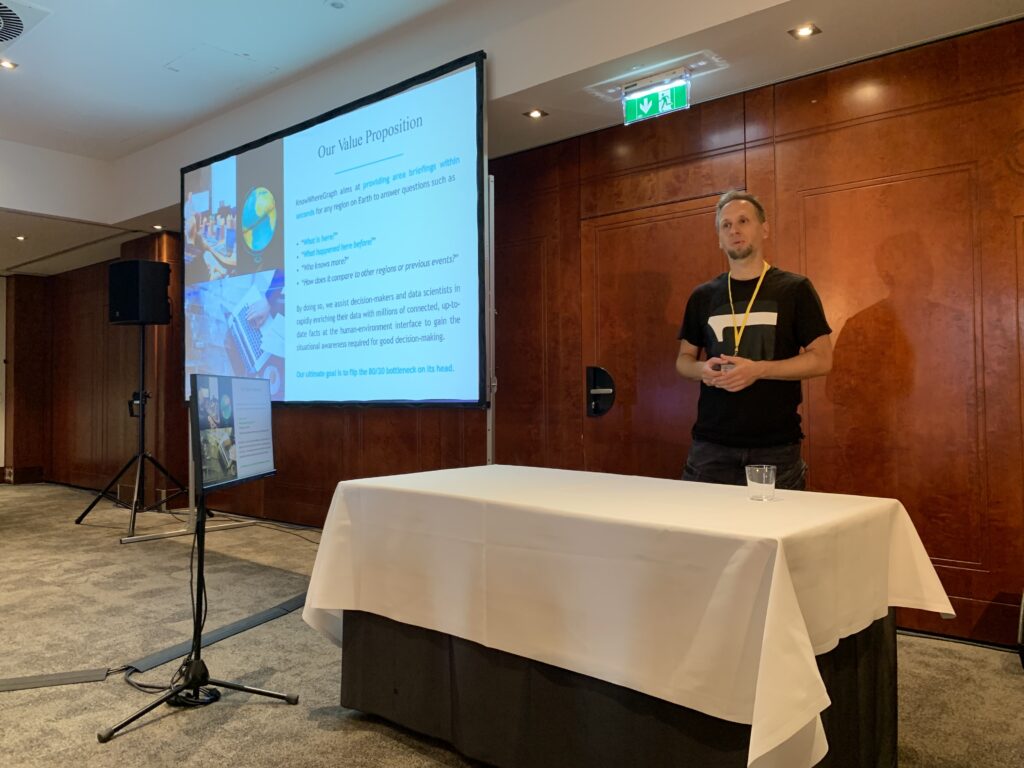
This session was dedicated to the latest research on linking and using the DBpedia Knowledge Graph and beyond. New methods, tools and challenges around knowledge graph linking and usage were presented and discussed. Milan Dojchinovski (InfAI, CTU Prague) chaired this session with five talks. Hereafter you will find the presentations given during this session:
- “Know, Know Where, KnowWhereGraph” by Krzysztof Janowicz, University of Vienna (slides)
- “Fast Hubness-Reduced Nearest Neighbor Search for Entity Alignment in Knowledge Graphs” by Daniel Obraczka, Data Science Center ScaDS.AI Dresden/Leipzig (slides)
- “Open Research Knowledge Graph” by Vinodh Ilangovan, Leibniz Information Centre for Science and Technology (TIB) (slides)
- “Bootstrapping Knowledge Graphs using DBpedia’s Ecosytem – AKSW.org KG 2.0” by Marvin Hofer, Data Science Center ScaDS.AI Dresden/Leipzig (slides)
- “SDM-RDFizer” by Enrique Iglesias, L3S (slides)
DBpedia Community session
Sebastian Hellmann, InfAI/DBpedia Association, hosted this year’s DBpedia Community Session. Linking data has been heavily researched for decades. The main reason for its popularity is that linking is a necessary condition for use in the sense of discovery (follow links) and integration (use links for data fusion). This session focused on data from specific communities (e.g., national datasets, digital humanities, DBpedia language chapters) so that best practices for discovery, linking, and use can be derived. The three talks were dedicated to this topic.
Following, you find a list of all presentations of this session:
- “Linking Linked Data – Useful Links” by Sebastian Hellmann, InfAI/DBpedia Association (slides)
- “DBpedia Databus – User-generated Data Catalogues” by Johannes Frey, InfAI/DBpedia Association
- “Open Data Austria” by Brigitte Barotanyi, Federal Ministry of Labour and Economy (Austria) (slides)
In case you missed the event, all slides are also available on our event page. Further insights, feedback and photos about the event are available on Twitter via #DBpediaDay.
We are now looking forward to more DBpedia events in the upcoming months and next year’s SEMANTiCS Conference, which will be held in Leipzig, Germany.
Stay safe and check Twitter or LinkedIn. Furthermore, you can subscribe to our Newsletter for the latest news and information around DBpedia.
Emma & Julia
on behalf of the DBpedia Association
The post DBpedia Day in Vienna – Servus! appeared first on DBpedia Association.
]]>The post DBpedia Day – Hallo Gemeenschap! appeared first on DBpedia Association.
]]>First and foremost, we would like to thank the Institute for Applied Informatics for supporting our community and many thanks to the VU University Amsterdam and the SEMANTiCS organisation team for hosting this year’s DBpedia Day.
Opening of the DBpedia Day
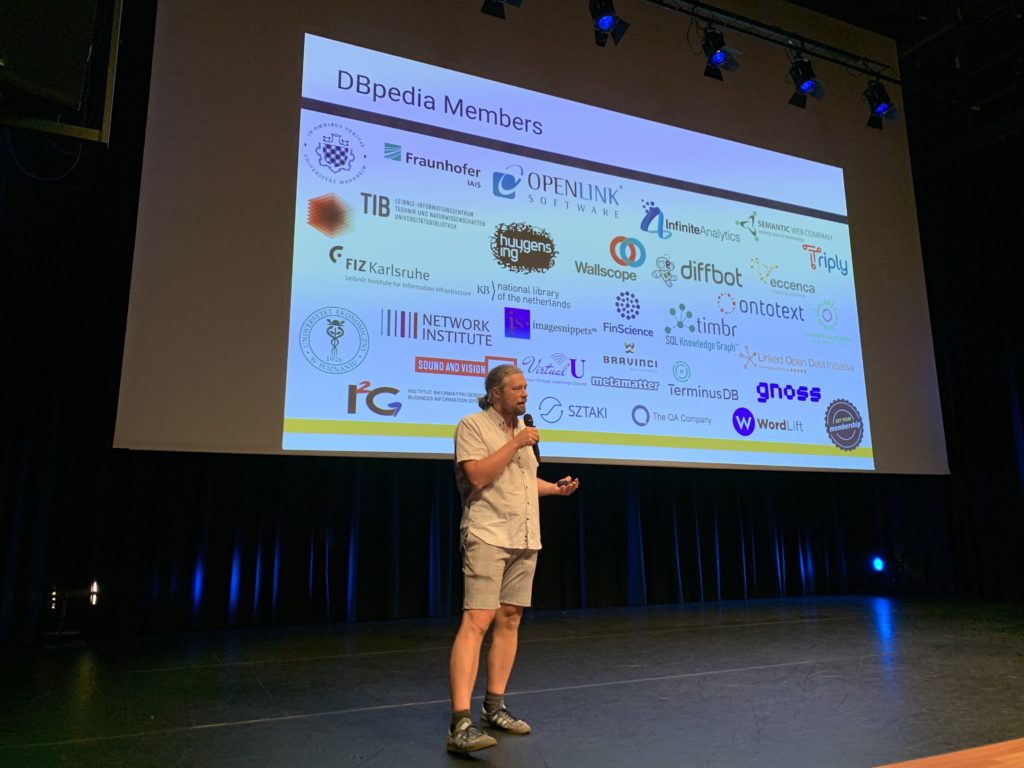
Our CEO, Sebastian Hellmann, opened the DBpedia Day with an update about the DBpedia Databus and DBpedia members. He presented the huge and diverse network DBpedia has built up in the last 13 years. Afterwards, Maria-Esther Vidal, TIB, completed the opening session with her keynote “Enhancing Linked Data Trustability and Transparency through Knowledge-driven Data Ecosystems”. If you would like to get more insights, please find both slide decks here.
Member Presentation Session
Dennis Diefenbach, The QA Company, started the DBpedia member presentation session with his presentation “Question Answering over DBpedia”. Shortly after, Luke Feeney and Gavin Mendel-Gleason, TerminusDB, promoted the implementation of a cloud data mesh with a Knowledge Graph. Next, Russa Biswas, FIZ, talked about “Entity Type Prediction in DBpedia using Neural Networks”. Followed by another remote presentation by Ricardo Alonso Maturana and Susana López, Gnoss, presenting the “Didactalia Encyclopaedia”. They demonstrated a chronological, compared and contextual perspective of enriched and linked entities.
Afterwards, Antonia Donvito from FinScience explained how they use DBpedia Spotlight-a tool for automatically annotating mentions of DBpedia resources in text, providing a solution for linking unstructured information sources to the Linked Open Data cloud through DBpedia. Kathrin Dentler, Triply, talked about “Bringing linked data to the domain expert with TriplyDB data stories”. Closing the member session, Margaret Warren, ImageSnippets, presented “Anchoring Images to Meaning Using DBpedia” live via Zoom from Florida, U.S.
For further details of the presentations follow the links to the slides.
- “Question Answering over DBpedia” by Dennis Diefenbach, The QA Company (slides)
- Implementing a Cloud Data Mesh with a Knowledge Graph” by Luke Feeney and Gavin Mendel-Gleason, TerminusDB (slides)
- “Entity Type Prediction in DBpedia using Neural Networks” by Russa Biswas, FIZ Karlsruhe (slides)
- “Didactalia Encyclopaedia: a chronological, compared and contextual perspective of enriched and linked entities which presents a global view of human knowledge using semantic artificial intelligence” by Ricardo Alonso Maturana, GNOSS (slides)
- “DBpedia Spotlight @ FinScience: alternative data for fintech applications” by Antonia Donvito, FinScience (slides)
- “Bringing linked data to the domain expert with TriplyDB data stories” by Kathrin Dentler, Triply (slides)
- “Anchoring Images to Meaning Using DBpedia” by Margaret Warren, ImageSnippets (slides)
Ontology and NLP Sessions at the DBpedia Day
As a regular part of the DBpedia Community Meeting, we had two parallel sessions in the afternoon where DBpedians discussed most recent challenges in the context of DBpedia. Participants interested in NLP-related topics joined the NLP & DBpedia session. Milan Dojchinovski (InfAI, CTU Prague) chaired this session with four very stimulating talks. Hereafter you will find the presentations given during this session:
- “Zero-Shot Text Classification for Scholarly Data with DBpedia” by Fabian Hoppe, FIZ Karlsruhe (slides)
- “European network for Web-centred linguistic data science” by Jorge Gracia (University of Zaragoza) and Thierry Declerck, DFKI, Germany (slides)
- “Capturing the semantics of documentary evidence of humanities research” by Enrico Daga, KMi, The Open University, United Kingdom (slides)
- “NLP & DBpedia: Literature Review” by Artem Revenko, Semantic Web Company, Austria (slides)
At the same time, the DBpedia Ontology Session provided a platform for the community to discuss implementable criteria to evaluate ontologies, especially the ontology archive DBpedia Archivo. Hereafter you will find all presentations given during this session:
- “Introduction & Motivation” by Sebastian Hellmann, InfAI/DBpedia (slides)
- “Exploiting Semantic Knowledge Graphs to enable data integration and interoperability within the Agrifood sector” by Monika Solanki, Agrimetrics (slides)
- “DBpedia Archivo” by Denis Streitmatter, InfAI/AKSW (slides)
- “FOOPS! An Ontology Pitfall Scanner for the FAIR principles” by Daniel Garijo, UPM (slides)
Diversity of DBpedia – The DBpedia Language Chapters
This year’s DBpedia Day also covered a special chapter session, chaired by Enno Meijers, KB and Dutch DBpedia Language Chapter. Two speakers presented the latest technical and organizational developments of their respective chapters. Furthermore, Johannes Frey showcased the Dutch National Knowledge Graph (DNKG). During the DBpedia Autumn Hackathon 2020 the DBpedia team worked together with a group of Dutch organizations to explore the feasibility of building a DNKG. The knowledge graph was built from a number of authoritative datasets using the DBpedia Databus approach.
Following, you find a list of all presentations of this session:
- “Latest enhancements in the Spanish DBpedia” by Mariano Rico, Technical University of Madrid (UPM) (slides)
- “Creating the Hungarian DBpedia using the Databus” by Andras Micsik, SZTAKI (slides)
- “Dutch National Knowledge Graph pilot” by Johannes Frey, InfAI/DBpedia Association) (slides)
- Discussion about the future of the local DBpedia chapters lead by Enno Meijers
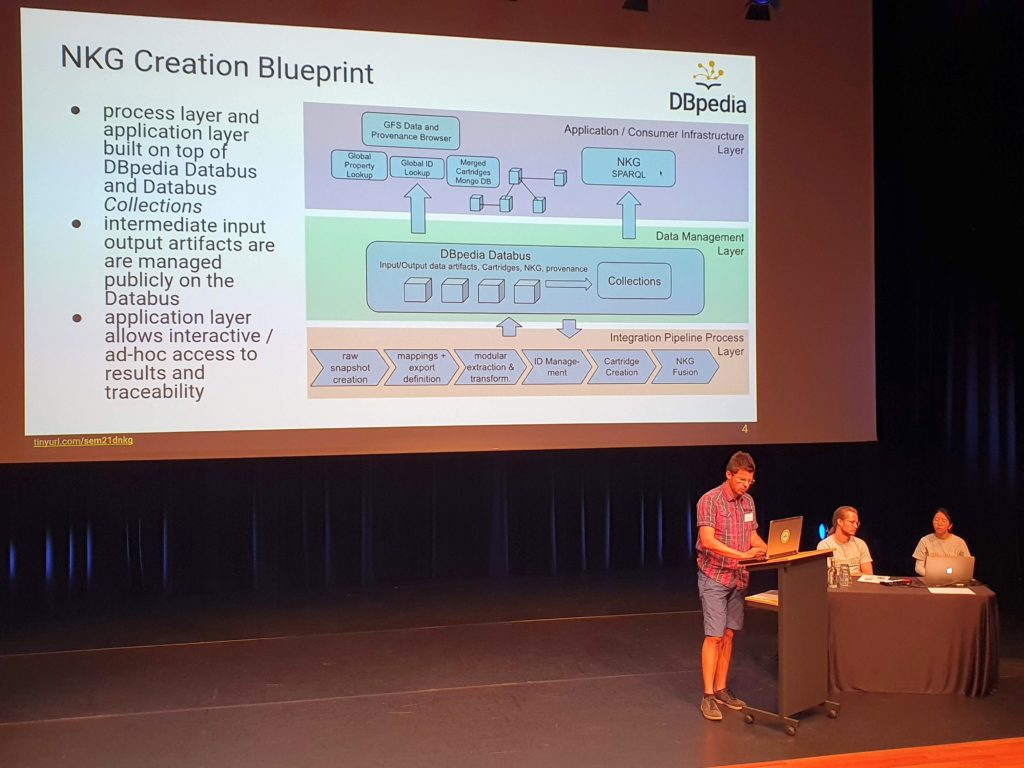
In this DBpedia chapter session we had a closer look at the results of the DNKG pilot. Furthermore, two DBpedia language chapters (Spanish and Hungarian) presented current developments and research results. Closing this session, Enno Meijers led a discussion about the opportunities of the DBpedia Databus for creating local chapters and building (national) knowledge graphs in general.
Summing up, the DBpedia Day at the SEMANTiCS conference brought together more than 100 DBpedia enthusiasts from Europe who engaged in vital discussions about Linked Data, the DBpedia archivo as well as DBpedia use cases and services.
In case you missed the event, all slides are also available on our event page. Further insights, feedback and photos about the event are available on Twitter via #DBpediaDay.
We are now looking forward to more DBpedia meetings in the next year. DBpedia will be part of the Connected Data World taking place online on December 1–3, 2021. We will organize a masterclass.
Stay safe and check Twitter or LinkedIn. Furthermore, you can subscribe to our Newsletter for the latest news and information around DBpedia.
Julia
on behalf of the DBpedia Association
The post DBpedia Day – Hallo Gemeenschap! appeared first on DBpedia Association.
]]>The post DBpedia Archivo: 1 Year Retrospective appeared first on DBpedia Association.
]]>September 9th, 2021 at 1pm CEST: In particular, we would like to invite you to the DBpedia Ontology session at the DBpedia Day at SEMANTiCS 2021 to discuss the future roadmap for Archivo as a Unified Semantic Ontology Space (USOS) and what the role of the DBpedia Ontology will be in the Semantic Web.
Session Topics
The session will host impulse talks with ample room for discussion. For the first time in the history of the Semantic Web, Archivo offers the possibility to create a Unified Semantic Ontology Space (USOS), a holistic view over all available ontologies. Instead of soft and fuzzy principles such as FAIR, we will discuss hard, implementable criteria to evaluate ontologies in preparation of a well-defined, measurable standard, which will ultimately yield better and reliable ontologies for industrial applications. Another topic is the central collaboration on links and mappings between ontologies to create a more dense and well-connected web of ontologies. Join the discussion and register here.
Successes and Highlights
An Exhaustive Ontology Archive
We implemented 5 discovery mechanisms that run each week. These mechanisms have proven effective to develop Archivo into one of the most exhaustive ontology archives. As of today, Archivo provides an alternative, persistent download location for 1407 ontologies. Growth has not reached a plateau, yet and it is steadily growing at a pace of 12.6 ontologies per week (6 month average).
Community Adoption
While 1246 ontologies were automatically discovered, we also received 159 user submission (i.e. adding the Ontology URL at https://archivo.dbpedia.org/add). Archivo is also serving 90 ontology downloads on an average day (plus 640 daily downloads from major bots) and will soon provide popularity ratings. The archive can be downloaded as a whole. Note that we also keep some ontologies that are no longer available under their original URL such as: GEORSS (info, download) to allow stable operation of the Semantic Web.
Ontology Accessibility
Archivo uses all kinds of cunning tricks to find, access and persist ontologies. Our crawlers and parsers have matured over the last year and – although we might have overlooked something – we are quite certain that the following statement holds: “If DBpedia Archivo can not process an ontology, the ontology is not retrievable or parseable, which will negatively impact all further applications”. On the other hand, if Archivo manages to access and parse the ontology, it will be persisted for future generations (following a fair use / no abuse policy regarding size restrictions).
Ontology Quality vs. Coverage
Besides accessibility, Archivo evaluates availability and conformity of license statements as well as consistency as a minimal baseline to assign the 4 Archivo stars. On August 16th, 2021, we can report that the web of ontology reached above 2 stars on average with 303 ★★★★, 246 ★★★☆, 18 ★★☆☆ and 836 ★☆☆☆ ontologies. Two weeks later the average fell to 1.999 stars as 4 more ontologies were discovered. We see it as a challenge for Archivo to likewise improve the orthogonal goals of exhaustive coverage as well as high quality ontologies. We believe, however, that the system is able to accommodate both over time.
Versioning
Ontologies are checked every 8 hours for changes. So far Archivo has archived 3713 for the 1407 ontologies. Ontology practitioners are now able to code applications to specific archived ontology versions and need not fear that major ontological changes are published under the same URL, breaking SPARQL queries and applications.
Stay safe and check Twitter or LinkedIn. Furthermore, you can subscribe to our Newsletter for the latest news and information around DBpedia.
Sebastian Hellmann
on behalf of the DBpedia Association
The post DBpedia Archivo: 1 Year Retrospective appeared first on DBpedia Association.
]]>The post A year with DBpedia – Retrospective Part 2/2020 appeared first on DBpedia Association.
]]>DBpedia Autumn Hackathon and the KGiA Conference
From September 21st to October 1st, 2020 we organized the first Autumn Hackathon. We invited all community members to join and contribute to this new format. You had the chance to experience the latest technology provided by the DBpedia Association members. We hosted special member tracks, a Dutch National Knowledge Graph Track and a track to improve DBpedia. Results were presented at the final hackathon event on October 5, 2020. We uploaded all contributions on our Youtube channel. Many thanks for all your contributions and invested time!
The Knowledge Graphs in Action event
The SEMANTiCS Onsite Conference 2020 had to be postponed till September 2021. To bridge the gap until 2021, we took the opportunity to organize the Knowledge Graphs in Action online track as a SEMANTiCS satellite event on October 6, 2020. This new online conference is a combination of two existing events: the DBpedia Community Meeting, which is regularly held as part of the SEMANTiCS, and the annual Spatial Linked Data conference organised by EuroSDR and the Platform Linked Data Netherlands. We glued it together and as a bonus we added a track about Geo-information Integration organized by EuroSDR. As special joint sessions we presented four keynote speakers. More than 130 knowledge graph enthusiasts joined the KGiA event and it was a great success for the organizing team. Do you miss the event? No problem! We uploaded all recorded sessions on the DBpedia youtube channel.
KnowConn Conference 2020
Our CEO, Sebastian Hellmann, gave the talk ‘DBpedia Databus – A platform to evolve knowledge and AI from versioned web files’ on December 2, 2020 at the KnowledgeConnexions Online Conference. It was a great success and we received a lot of positive and constructive feedback for the DBpedia Databus. If you missed his talk and looking for Sebastians slides, please check here: http://tinyurl.com/connexions-2020
DBpedia Archivo – Call to improve the web of ontologies
On December 7, 2020 we introduced the DBpedia Archivo – an augmented ontology archive and interface to implement FAIRer ontologies. Each ontology is rated with 4 stars measuring basic FAIR features. We would like to call on all ontology maintainers and consumers to help us increase the average star rating of the web of ontologies by fixing and improving its ontologies. You can easily check an ontology at https://archivo.dbpedia.org/info. Further infos on how to help us are available in a detailed post on our blog.
Member features on the blog
At the beginning of November 2020 we started the member feature on the blog. We gave DBpedia members the chance to present special products, tools and applications. We published several posts in which DBpedia members, like Ontotext, GNOSS, the Semantic Web Company, TerminusDB or FinScience shared unique insights with the community. In the beginning of 2021 we will continue with interesting posts and presentations. Stay tuned!
We do hope we will meet you and some new faces during our events next year. The DBpedia Association wants to get to know you because DBpedia is a community effort and would not continue to develop, improve and grow without you. We plan to have meetings in 2021 at the Knowledge Graph Conference, the LDK conference in Zaragoza, Spain and the SEMANTiCS conference in Amsterdam, Netherlands.
Happy New Year to all of you! Stay safe and check Twitter, LinkedIn and our Website or subscribe to our Newsletter for the latest news and information.
Yours,
DBpedia Association
The post A year with DBpedia – Retrospective Part 2/2020 appeared first on DBpedia Association.
]]>The post 2020 – Oh What a Challenging Year appeared first on DBpedia Association.
]]>In the upcoming Blog-Series, we like to take you on a retrospective tour through 2020, giving you insights into a year with DBpedia. We will highlight our past events and the development around the DBpedia dataset.
A year with DBpedia and the DBpedia dataset – Retrospective Part 1
DBpedia Workshop colocated with LDAC2020
On June 19, 2020 we organized a DBpedia workshop co-located with the LDAC workshop series to exchange knowledge regarding new technologies and innovations in the fields of Linked Data and Semantic Web. Dimitris Kontokostas (diffbot, US) opened the meeting with his delightful keynote presentation ‘{RDF} Data quality assessment – connecting the pieces’. His presentation focused on defining data quality and identification of data quality issues. Following Dimitri’s keynote many community based presentations were held, enabling an exciting workshop day.
Most Influential Scholars
DBpedia has become a high-impact, high-visibility project because of our foundation in excellent Knowledge Engineering as the pivot point between scientific methods, innovation and industrial-grade output. The drivers behind DBpedia are 6 out of the TOP 10 Most Influential Scholars in Knowledge Engineering and the C-level executives of our members. Check all details here: https://www.aminer.cn/ai2000/country/Germany
DBpedia (dataset) and Google Summer of Code 2020

For the 9th year in a row, we were part of this incredible journey of young ambitious developers who joined us as an open source organization to work on a GSoC coding project all summer. With 45 project proposals, this GSoC edition marked a new record for DBpedia. Even though Covid-19 changed a lot in the world, it couldn’t shake GSoC. If you want to have deeper insights in our GSoC student’s work you can find their blogs and repos here: https://blog.dbpedia.org/2020/10/12/gsoc2020-recap/.
DBpedia Tutorial Series 2020
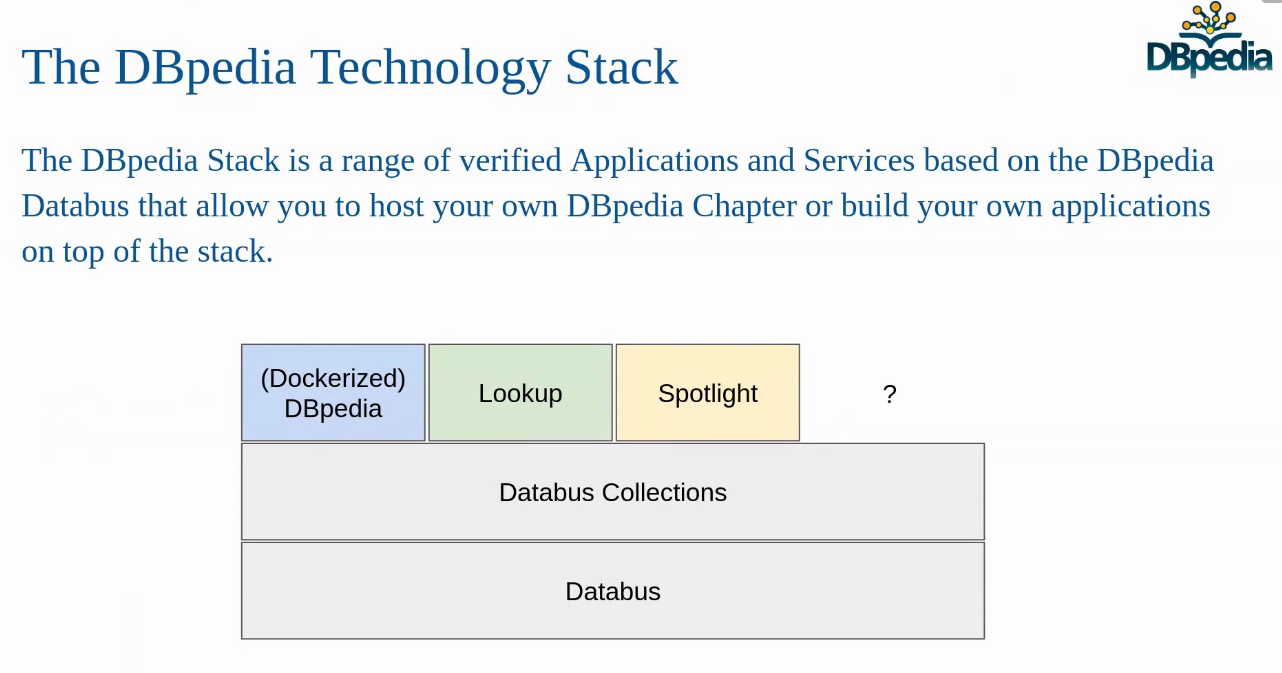
During this year we organized three amazing tutorials in which more than 120 DBpedians took part. Over the last year, the DBpedia core team has consolidated a great amount of technology around DBpedia. These tutorials are target to developers (in particular of DBpedia Chapters) that wish to learn how to replicate local infrastructure such as loading and hosting an own SPARQL endpoint. A core focus was the new DBpedia Stack, which contains several dockerized applications that are automatically loading data from the DBpedia Databus. We will continue organizing more tutorials in 2021. Looking forward to meeting you online! In case you miss the DBpedia Tutorial series 2020, watch all videos here.
In our upcoming Blog-Post after the holidays we will give you more insights in past events and technical achievements. We are now looking forward to the year 2021. The DBpedia team plans to have meetings at the Knowledge Graph Conference, the LDK conference in Zaragoza, Spain and the SEMANTiCS conference in Amsterdam, Netherlands. We wish you a merry Christmas and a happy New Year. In the meantime, stay tuned and visit our Twitter channel or subscribe to our DBpedia Newsletter.
Yours DBpedia Association
The post 2020 – Oh What a Challenging Year appeared first on DBpedia Association.
]]>